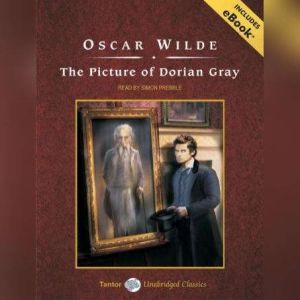

The Picture of Dorian Gray, with eBook
Author: Oscar Wilde
Narrator: Simon Prebble
Unabridged: 8 hr 6 min
Format: Digital Audiobook Download
Publisher: Tantor Media
Published: 09/22/2008
Includes:
Bonus Material
![]()
Synopsis
Taking the reader in and out of London drawing rooms, to the heights of aestheticism, and to the depths of decadence, The Picture of Dorian Gray is not simply a melodrama about moral corruption. Laced with bon mots and vivid depictions of upper-class refinement, it is also a fascinating look at the milieu of Wilde's fin-de-siècle world and a manifesto of the creed "Art for Art's Sake."
The ever-quotable Wilde, who once delighted London with his scintillating plays, scandalized readers with this, his only novel. Upon publication, Dorian was condemned as dangerous, poisonous, stupid, vulgar, and immoral, and Wilde as a "driveling pedant." The novel, in fact, was used against Wilde at his much-publicized trials for "gross indecency," which led to his imprisonment and exile on the European continent. Even so, The Picture of Dorian Gray firmly established Wilde as one of the great voices of the Aesthetic movement and endures as a classic that is as timeless as its hero.

